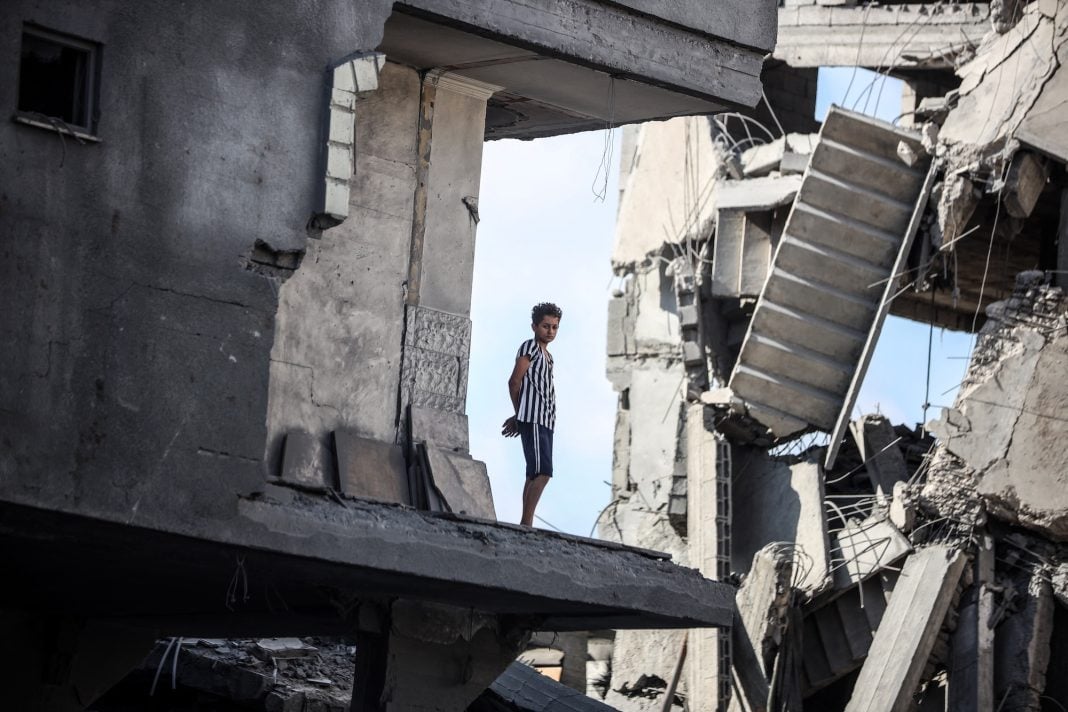In a significant development at the United Nations, the United States exercised its veto power on Wednesday, blocking a proposal for a ceasefire in Gaza that aimed to end the ongoing conflict between Israel and Hamas. The resolution, which called for an “immediate, unconditional, and permanent ceasefire,” also sought the release of all hostages taken during the violent clashes that erupted on October 7, 2023.
The veto was met with criticism from various quarters. Israel’s Ambassador to the UN, Danny Danon, lauded the U.S. decision, asserting that the resolution would have led to increased terror and suffering rather than peace. “Many of you attempted to pass this injustice. We thank the United States for exercising its veto,” Danon remarked, emphasizing Israel’s stance against any proposal that might aid Hamas.
The U.S. Deputy Ambassador to the UN, Robert Wood, reiterated that there must be a connection between any call for a ceasefire and the release of hostages, aligning with the ongoing U.S. policy in the region. The escalation of violence, triggered by a Hamas cross-border raid that resulted in significant Israeli casualties, has led to a humanitarian disaster in Gaza, with the health ministry in the area reporting an alarming death toll of approximately 43,985 individuals, primarily civilians.
Since the October assaults, 251 hostages were taken by Hamas, with 97 still believed to be held in Gaza, including 34 who the Israeli military claims are deceased. The conflict has led to widespread displacement, with almost all of Gaza’s 2.4 million residents affected by the war’s consequences. The dire humanitarian situation has prompted Hamas to label the U.S. as complicit in what they call aggression against Palestinians, denouncing the U.S. as “a criminal” state that harms innocents.
The situation in the Security Council has been complicated by a lack of unified support for resolutions addressing the conflict. Although the United States has exercised its veto multiple times, nations such as Russia and China have also made use of their veto powers, indicating a deeply fragmented approach toward the crisis. A recent U.S. official noted the ongoing tensions, mentioning China’s demand for “stronger language” and suggesting that Russia has been exerting influence over member states advocating for resolutions like the one vetoed.
Prior attempts at peaceful resolutions have been met with limited success; for instance, a temporary ceasefire proposal during Ramadan went largely ignored by the involved factions. The U.S. has, however, allowed certain resolutions to pass, albeit those fell short of calling for a full and unconditional ceasefire.
Human rights organizations have condemned the U.S. veto, such as Human Rights Watch, which accused the U.S. of enabling Israeli actions against Palestinians in Gaza. The rejected resolution also sought to ensure the safe passage of humanitarian aid into Gaza, a pressing need given the humanitarian catastrophe unfolding in the region.
Palestinian representatives at the UN expressed their dismay over the veto, with Ambassador Majed Bamya stating that there was “no justification whatsoever for vetoing a resolution trying to stop atrocities.” As the conflict continues to escalate with no clear resolution in sight, the international community watches closely, with hopes that future discussions may yield a effective path towards peace.





